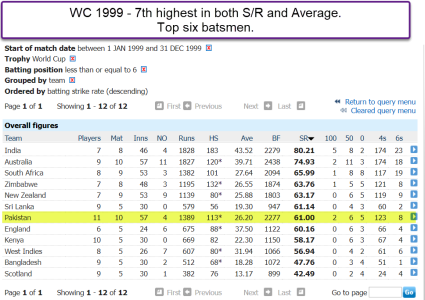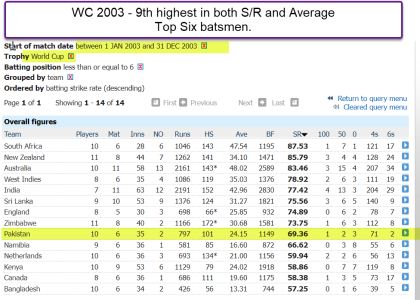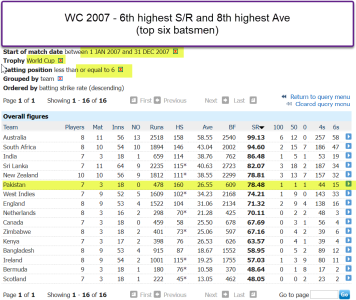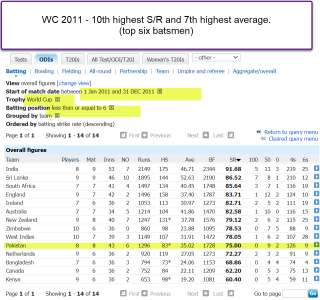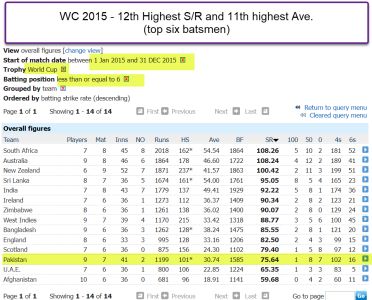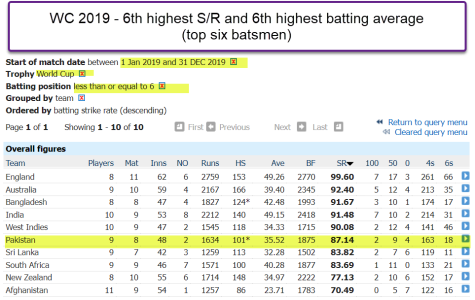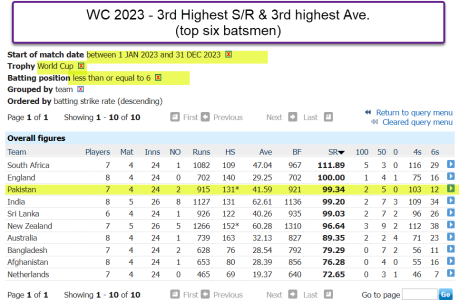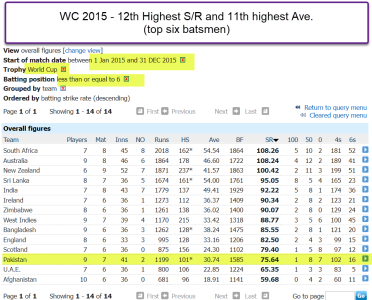The fascination with pelting the ball in the 0-10 PP phase needs to stop. For one, fans are drunk on T20 style innings thinking the same can be replicated in ODIs, and for two, scoring big in 0-10 PP phase doesn't guarantee a win, nor is there any concrete evidence that number of runs in 0-10 PP phase is proportional to the probability of a win.
Look at today's SA v ENG game, South Africa were 256-5 after 40 overs, then plundered 143 runs from the last 10 overs, and 84 from the FINAL 5 overs!
ODI batting is all about knowing when to accelerate and decelerate an innings! SA played it to perfection, and it was a simple case of science. Jos Buttler's decision to bowl first was the wrong one and it had nothing to do with the wickets etc, it was a cardinal error - to field first in the heat and humidity!
England bowlers were knackered by the 40th over, SA took advantage, and then the English batting failed because they were tired and trying to hit the ball out the park in the 1st 10 overs!
Point being, conventional approach, with emphasis on strike rotation, and dispatching bad balls, is the best approach and will remain fundamental no matter how the ODI game develops. Cricket is a mind game, not a boundaries game, and sometimes we tend to forget the physics - Energy and Endurance in the longer format of the game.
What does change is, as mentioned, the captaincy. Pakistan's challenges range from mindset to captaincy. Pakistan is now regularly scoring 300+ whether chasing or not, chased 350+, and remember set 350 in CT17 final too! So absolutely no similarities with the 1990s style what so ever, other than poor performances are attributed to captaincy and mindset, which has always been the case in Cricket.
Babar is a quality batsman, but he is a hopeless captain, and it shows. The team just seem to be lost. Their minds and bodies detached! Something which power hitting will never rectify!






